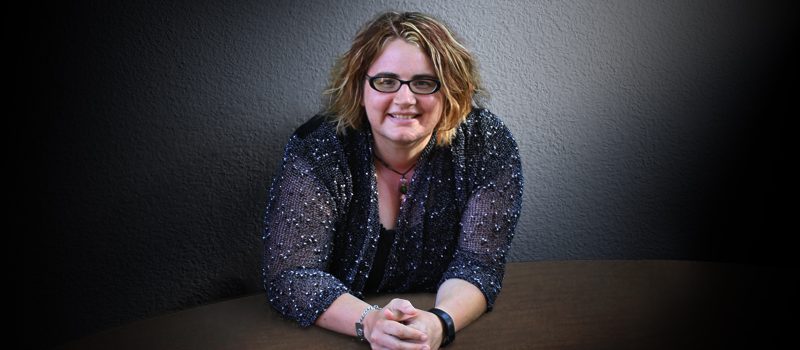Kameron Hurley: Publishing’s Not Dying, It’s Diversifying (And You Should Too)
In conversation with my agent about a potential project a few weeks ago, I said something to the effect of, ‘‘But what can they give me besides a cover and copyedit? They don’t have a strong distribution platform for this kind of fiction, and they don’t have a strong structural editing team. I have a large enough following online now that I could put it up myself and make back cover and copyedit costs in a month or two.’’
It was in this moment that I realized I’d gone from, ‘‘Oh please someone give me a publishing contract,’’ to a career writer with options. For all the doom and gloom about the publishing industry during the last 20 years (or more!), what the advent and proliferation of digital platforms has given us as creators are options.
I didn’t walk into publishing as a particularly business-minded person. I knew straight away that there were folks who knew more about the business than I did, and I needed to learn what I was doing and take the advice of agents and other writers along the way. With my first novel, I found myself in the all too common situation of signing on with a publisher that was already in the slow process of melting down when we inked my first contract, and things only got worse after that.
But that forced me to interrogate exactly what I was getting from publishers going forward – and for exactly how long. Publishers, like employers or Hollywood folks or record executives, will tell you all sorts of things to get you to sign agreements with them. Their job is to get the most rights to your work for the least amount of money. I love a great many of the people in publishing, but at the end of the day, I recognize that publishers aren’t going to make me an offer on a work they don’t think they can make money from. It’s my job, as the creator of the work, to ensure I get a fair cut of that.
I’m going to say that again, for the cheap seats: it’s your job as a writer, as the president and owner of your own little writing company of one, to get the best possible deal for yourself. Radical, I know.
As the profile of my work has risen a bit the last couple of years, I’ve found myself approached by a lot more publishers and pros. I’m not running as madly after publishers, at least not so much, and it’s given me some perspective. I’ve been through the very worst publishing has to offer, with three books stuck at a publisher that isn’t quite sure how to promote them. I remember one long back-and-forth with them where I realized that if I had the license to the books back, I’d be able to sell far more of them on my own than the publisher had. And that’s an… odd feeling. Many of us are raised to respect power and authority, and to assume people in places farther up the food chain are smarter and know more than we do about our work. In some cases, that’s true, but in far too few of them. When you’ve leveled up your business sense enough to see the difference, it’s time to look at your options. You don’t have to take any offer just to say you have an offer. You don’t have to hitch your wagon to someone’s dying ox just to make a couple bucks as a writer.
I never thought I’d be in the place of turning down work, and maybe I never will be again, but for this narrow sliver of time, I find myself looking over what a publisher can give me that I can’t do myself. My work sells very well in the digital space – 60-70% of my sales are still e-book (some of this is because I have a strong online presence in genre, some of this is simply that I’ve been with publishers with a lower penetration in paper spaces so digital is often the only place folks can get my work reliably). That means that choosing a digital-only publisher does very little for me. I’d make far more money on my own mocking up a cover, hiring my own copyeditor, and posting it myself. Anyone who tells you that posting your work up online is a super complicated business (outside of iBooks, maybe) is being less than honest with you.
But publishers who can move my books into bookstores, provide strong structural editing, and pay for original covers (as opposed to the cut-and-paste stock photo type I can do myself) are giving me things I can’t do myself. They have access to book buyers in a way that I don’t.
When new writers come to me saying they signed a ‘‘book deal’’ for digital-only, I ask what editing, promotional, and marketing efforts are included in that. The reality is that as an author, you have sunk costs in this novel – a year of your life, in many cases. A publisher should have some sunk costs too, or you’re not a real partnership – you’re just paying them as a middle-man to work with Amazon and Barnes and Noble and iBooks for you. I don’t know about you, but a 75% cut of my royalties is not worth paying someone to upload a book to Amazon for me.
In a publishing environment where you can invest a few extra hours in publishing work on your own, hiring your own copy-editor, and putting together a decent cover yourself for anywhere from $500-800 instead of thousands of dollars, there should be no situation where an author loses.
Alas. We still make poor decisions sometimes.
I get the rush to publication. I know we all want to say we have a book deal, even if it’s a terrible one. But waiting for the right deal is going to save you a lot of pain later. A lot of angst. A lot of legal fees.
I suspect that if I’d come of age as a writer during a time where every midlist book was guaranteed a $20,000 advance and a $100,000 deal for a trilogy was normal, I’d feel pretty betrayed by the current state of the market, but my expectations of publishing are fairly low. My first book was accepted and then cancelled during the 2008 crash. It’s taken a tremendous amount of work and a lot of critical acclaim for me to hit what would have been considered a lower-tier advance 20 or 30 years ago. I’m okay with that.
Why?
The reason I’m okay with it is because I’ve diversified my work. I have a self-published essay collection and several pieces of short fiction. I have work in process from three different publishers, and I’m always looking for others (the more financially stable, the better).
I’ve also gotten better at deciding when a project is best for me to put up on my own and when it’s best to partner with a publisher for it. Does the publisher have a strong editorial team? Do they invest in covers? Do they have existing relationships with book buyers from major chains? Are they interested in paying for table placement of the book, and advertising it in various trade journals?
Diversification of publishing platforms also means publishers are going to need to step up and add more value. We’ve heard a lot about the death of editing, and about nonexistent marketing budgets. But with so many options available to writers now, either publishers need to re-invest in those things, or writers need to sit down and decide whether or not what they’re getting for 75% of the cut on their royalties is worth it.
I’ve been watching the self-pub/traditional publishing ‘‘wars’’ with bemusement for some time now, and the reality is most writers realize that the best approach is to invest in both. I feel fortunate to be in a position to do both. And to pick my partners wisely.



 From the
From the 



